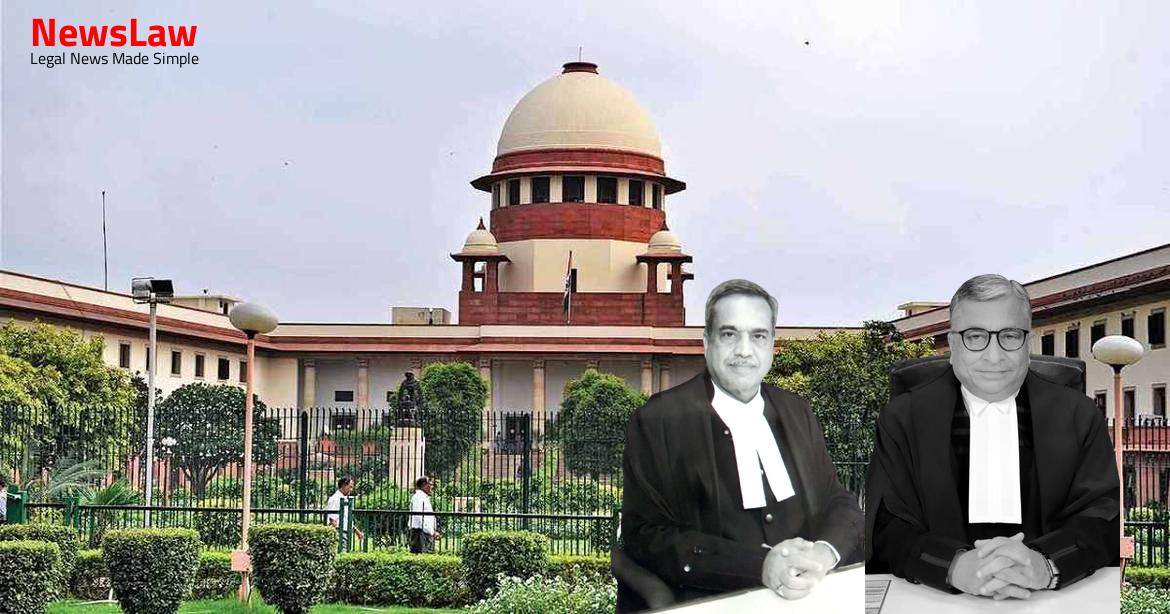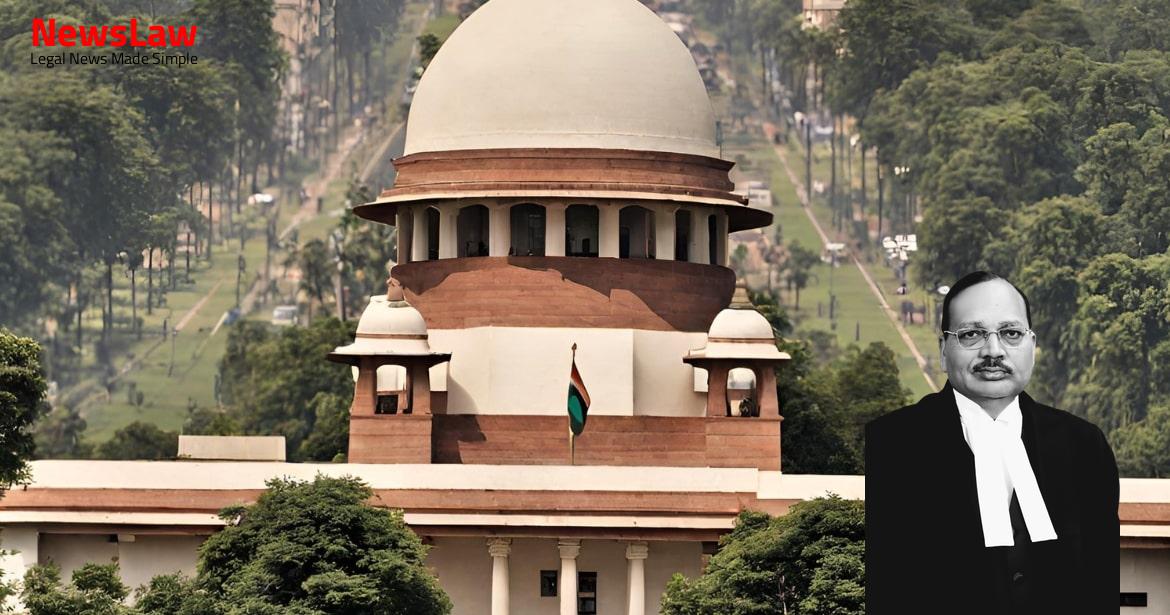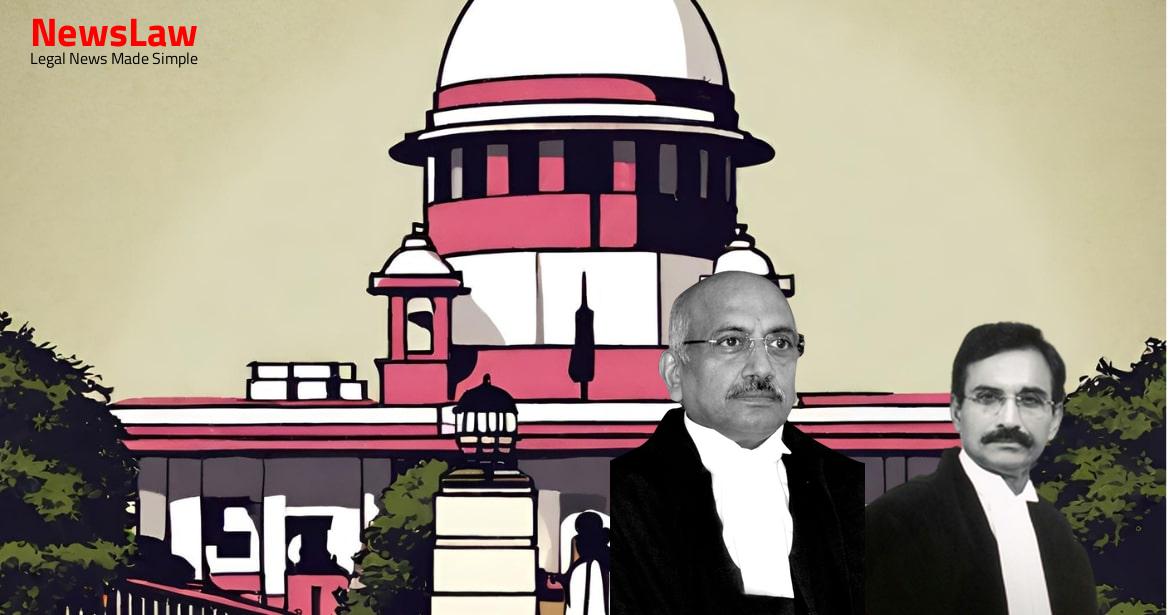Delve into the critical legal analysis conducted by the court regarding the implementation date of the MACP Scheme. The complexities of determining the correct applicability date of the scheme and the implications on employee benefits. Uncover the judicial scrutiny of retroactive amendments in public employee service conditions and the role of expert bodies in formulating such schemes. Stay informed on the legal intricacies surrounding employee entitlements and the transition from old to new benefit frameworks.
Facts
- Employees eligible for second financial up-gradation under ACP Scheme after 24 years of service
- DDA did not provide this benefit to employees
- MACP Scheme became operational on 1st September 2008
- Employees became eligible for second financial up-gradation under ACP Scheme from 01.2009
- Delhi High Court upheld the ACP Scheme and conditions
- MACP Scheme replaced ACP Scheme in May 2009
- Employees argued for ACP benefits till May 2009
- DDA contended that employees not qualified for second ACP benefits due to MACP Scheme
- CAT allowed employees’ claim for financial up-gradations under ACP Scheme till May 2009
- High Court directed MACP benefits to employees from January 2006
- Employees filed original applications in CAT regarding their grievance with the MACP scheme introduced by DDA.
- Employees claimed entitlement to the second ACP benefit which they believed had accrued to them earlier.
- Employees argued that they should have been granted the second ACP benefit as they had completed 24 years of service before the introduction of the MACP Scheme.
- Employees stated that the ACP Scheme was more beneficial to them compared to the MACP Scheme.
- CAT recognized the employees’ completion of 24 years of service before the introduction of the MACP Scheme, entitling them to the second financial up-gradation under the ACP Scheme.
Also Read: Electoral Malpractices in Mayor Election
Issue
- Central issue is the correct application date of the Modified Assured Career Progression Scheme (MACP)
- Delhi High Court’s reasoning in applying MACP from 01-01-2006 is in question
- Multiple appeals raising the common question of correct application date of MACP
Also Read: Balancing Power and Transparency: Electoral Bonds Struck Down, Disclosure Mandated
Arguments
- The Delhi Development Authority (DDA) argued that the Modified Assured Career Progression (MACP) scheme came into effect on 01.09.2008, making it the criteria for deciding the applicability of the old ACP or the MACP.
- Employees completed 24 years in January 2009, after the MACP came into force, therefore, they were not entitled to an up-gradation under the old ACP.
- The decision in Balbir Singh(supra) cited by the Delhi High Court was argued to apply only to Armed Forces personnel, not civil establishments like the DDA.
- It was emphasized that it has been 12 years since the implementation of the MACP scheme, and the impugned judgment would interfere with policy matters and result in significant financial implications.
- Reference was made to the decision in Union of India v. M.V. Mohanan Nair, which outlined the nature of MACP benefits and categorized the scheme under executive decision making.
- Union of India v. R.K. Sharma was also cited to support the argument that MACP benefits could only be availed from 01.09.2008, not from 01.01.2006, and the ACP scheme was valid only until 31 August 2008.
- The introduction of the MACP scheme by the Office Memorandum dated 19th May, 2009, superseded the earlier ACP scheme, making any benefit under the ACP scheme after 31 August 2008 irrelevant.
- The court observed that the Tribunal cannot impose its views on the government or direct new policy based on its own opinions.
- Employees’ entitlement to benefits under existing schemes should not be defeated by policies adopted later.
- The MACP scheme postulated the claim for ACP benefits as per the existing scheme until 31-08-2008.
- The right to ACP benefits is a vested right that should continue even after the introduction of a new scheme.
- The choice of a cut-off date for the implementation of a new policy should not be interfered with lightly by courts.
- The employees sought ACP benefits that were in force before the MACP scheme was launched.
- The ACP scheme aimed at providing career progression to Central Government civilian employees.
- The ACP scheme was introduced to address stagnation issues faced by employees due to inadequate promotional opportunities.
Also Read: Recall of Resolution Plan Approval: Legal Analysis
Analysis
- Expert bodies like the pay commission decisions are not usually subject to judicial review due to the complexity involved in pay fixation and the nature of employee duties.
- Retrospective amendments affecting retired employees’ pensions were deemed unconstitutional as they violated Articles 14 and 16 of the Constitution.
- Interference with such amendments could have serious financial implications on the public exchequer.
- Cases such as State of Gujarat v. Raman Lal Keshav Lal Soni highlighted the importance of protecting accrued or vested rights of employees.
- Various judgments emphasized that retrospective laws affecting employee benefits are arbitrary and violative of constitutional rights.
- Courts upheld the view that current rights of employees must be considered, and benefits like MACP are incentives and not part of pay.
- Legislatures are permitted to make laws with retrospective effects but must respect fundamental rights and accrued benefits of individuals.
- The role of expert bodies like the Sixth Central Pay Commission in examining issues of stagnation and efficiency in departments was recognized by the courts.
- Employment decisions like pay fixation should be approached with restraint by the courts, considering the complexities involved.
- The court discusses the transition from the ACP scheme to the MACP scheme for government employees.
- It emphasizes that the ACP scheme ended on 31.08.2008, and the MACP scheme was introduced on 01.09.2008, with an office order issued on 06.10.2009.
- The distinction between the ACP and MACP schemes is explained, highlighting the differences in benefits and eligibility criteria.
- The court mentions that rules can be made retrospective by giving them effect from an anterior date.
- It is noted that the MACP scheme replaced the ACP scheme and provided financial upgradation based on continuous service in the same grade pay.
- The court cautions against burdening the administration by insisting on continuing old schemes for some employees while applying new schemes to others.
- Legal aspects of vested rights in relation to service conditions of public employees are also discussed.
- The complexity of decision-making in formulating schemes that apply to a large employee base is recognized.
- The court rejects the argument that employees have a vested right to continue under the ACP scheme after the introduction of the MACP scheme.
- The court underscores the importance of expert recommendations, like those of the Pay Commission, in framing such schemes.
- The judgment also addresses the issue of retrospective application of the MACP scheme and the effective dates of implementation.
- The introduction of the MACP scheme from an earlier date does not justify compelling an executive agency to grant claimed benefits.
- Employees cannot argue that they would have benefitted more under the ACP benefits if the MACP scheme had not been introduced earlier.
Decision
- Benefits sought by employees were granted under interim orders pending proceedings before CAT but subject to final outcome.
- DDA can reverse benefits claimed under ACP scheme by employees.
- DDA will not disturb MACP benefits granted to employees from later dates if considered entitled to it.
- DDA’s appeals allowed, setting aside the impugned judgment and order.
- Employees’ appeals claiming ACP benefits dismissed.
- No order as to costs.
Case Title: THE VICE CHAIRMAN DELHI DEVELOPMENT AUTHORITY Vs. NARENDER KUMAR (2022 INSC 276)
Case Number: C.A. No.-001880-001880 / 2022



